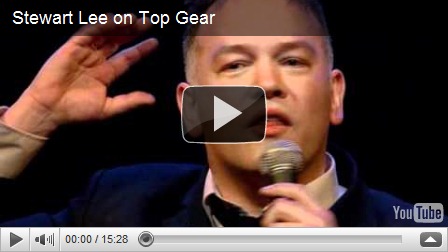The AV Referendum is edging ever closer, and both the Yes and No campaigns are in full swing. While the Yes camp are making some logically-unsound conclusions, the No camp are spreading downright lies, with talk of a potential legal challenge over Conservatives repeating these misleading claims.
One of the methods used by both camps is to release promotional material. I thought in this post I’ll take a look at the claims made by both camps in these pamphlets.
The No Camp
“The cost of AV is £250 million.”
Blatant lie. The most dastardly part of this figure is the claim that £130 million will be spent on voting machines. As confirmed by the Electoral Commission, AV votes will be counted by hand.
“Instead, that money could provide…”
Yes, putting a price on democracy – always a good tactic. As the £250 million claim is a lie, so are these figures.
“The second or third best can win under AV.”
Not true. This claim is based upon differing definitions of “best”. Under FPTP, best is the one who gets the most votes. Under AV, best is defined as the candidate who gets more that 50%*. The second or third best cannot therefore win under AV, unless you want to compare apples to oranges in a deliberately-misleading manner.
The example the No camp use to try and blur the fact they are comparing apples and oranges is to show an election where in the first round, candidate A has the most votes, but due to further rounds of counting, candidate B wins. Of course, in round one, this picture shows that more than 50% oppose candidate A – which is exactly why people want electoral reform.
* Under AV it is possible for a candidate to win, as under AV you can still just tick one box. In the worst-case scenario, where everyone votes in a FPTP-manner under an AV system, AV performs no differently to FPTP.
“Under AV, the votes of the least popular candidate can decide who wins the election.”
A claim from the No camp is that AV is not “one person, one vote”. That’s also a lie, everyone has one vote – that vote being an ordered list of preferences. AV actually reinforces a two-party system as minor parties have little chance of reaching the 50% mark, and so are eliminated. Their votes are then transferred to, typically, major parties. Baroness Warsi claimed on TV that AV would lead to more extremist parties being elected, despite the fact that the BNP and UKIP oppose AV. As AV is still “one person, one vote”, any logical conclusions drawn from AV not being that are incorrect.
“Under our present system, the one who comes first is always the winner.”
This is also true under AV, but again, this is comparing apples to oranges. AV and FPTP have different definitions of ‘coming first’, as explained above. The illustration they use again shows that candidate A was elected with less than 50% of the vote.
“AV is not a fair system. That’s why only three countries in the world use it: Fiji, Australia and Papa New Guinea.”
Sorry to again talk about comparing apples and oranges, but guess what this is? The number of countries who support a system has no correlation with the fairness of a given system. Using this kind of logic implies we should drive on the right-hand side of the road, because most of the world does that.
“The winner should be the one that comes first.”
This is true under AV and FPTP, just they have different definitions of coming first.
The Yes Camp
“The system we use to elect or politicians means most MPs don’t have to.”
“Vote no for more of the same – eg the expenses scandal.”
The Yes camp, rather than throwing a pile of shit, have thrown one single piece – and guess what, that’s wrong too. There is no correlation between safe seats and expense claims. There is no evidence that AV will end safe-seat culture (as I said above, it will reinforce a two-party system at Westminster).
Summary
The No camp leaflet is laughable – it is possible to find lies and misinformation in every sentence. They either seem unable to understand how the Alternative Vote system actually works; or they know fine well, and don’t want you to understand how it works. I’m going with the latter, given that the likes of Cameron, Osborne and Warsi are blindly repeating their claims on TV. The No camp is treating you like you are stupid, and are trying to frighten you with the prospect of change, and dead soldiers and babies.
The Yes camp have put all their eggs in one basket, and that’s wrong too. They are trying to appeal to the public outrage at the expenses scandal. They hope this will stir up a “stick it to your MP” attitude that will cause a yes result. I think it was a dangerous move for them to do – their claims are illogical, and it shows they can play dirty politics too.
I’m Still Voting Yes
I can only see one valid reason to vote no, whilst still wanting vote reform. This is that AV is not a proportional system. I think to vote no for this reason is a tactical mistake. If we wait for the perfect system, whilst opposing any changes which move the country a step closer to that perfect system, it is obvious that this perfect system will not arise.
The wording of the question on the referendum ballot paper is important. It is asking if you want to change the voting system to AV. It is not asking if you want voting reform at all. A no result will be incorrectly interpreted as support for First Past The Post, and justify the following argument whenever voting reform is brought back on the table:
“we tried it, and people said no.”
Now that is a misleading claim, but politicians always use misleading statistics to voice opinions. Why give them another piece of fuel?
I agree that AV is not the perfect system. I’d much prefer a proportional system rather than a system in which swing constituencies decide elections. But I also want this country to show that we are prepared to accept change, if it is change in the right direction.
In this referendum I think we should put aside the dirty politics of the Yes camp, and the even dirtier politics of the No camp. We should use a very rare opportunity to show the government just who’s in charge: us.
As an aside, take a look at the brilliant Fact-check website, who have been running a series of fact-checks on the claims made by both campaigns, the political parties and the media. They’ve went in far more detail than anyone else to my knowledge.
















